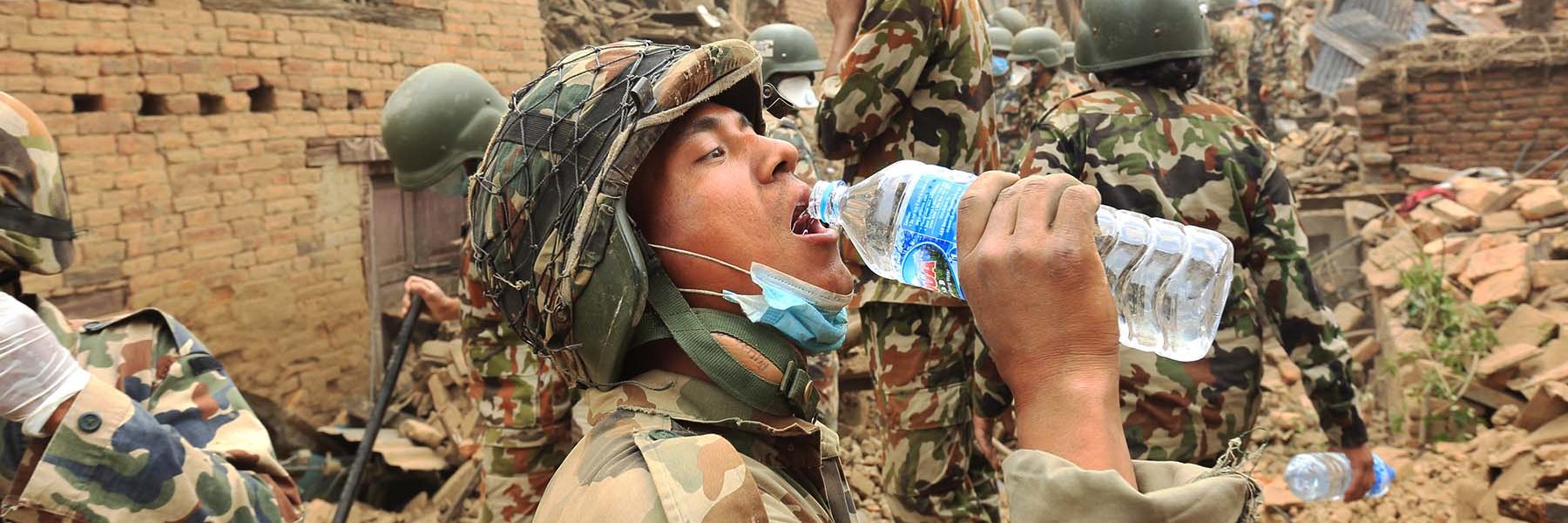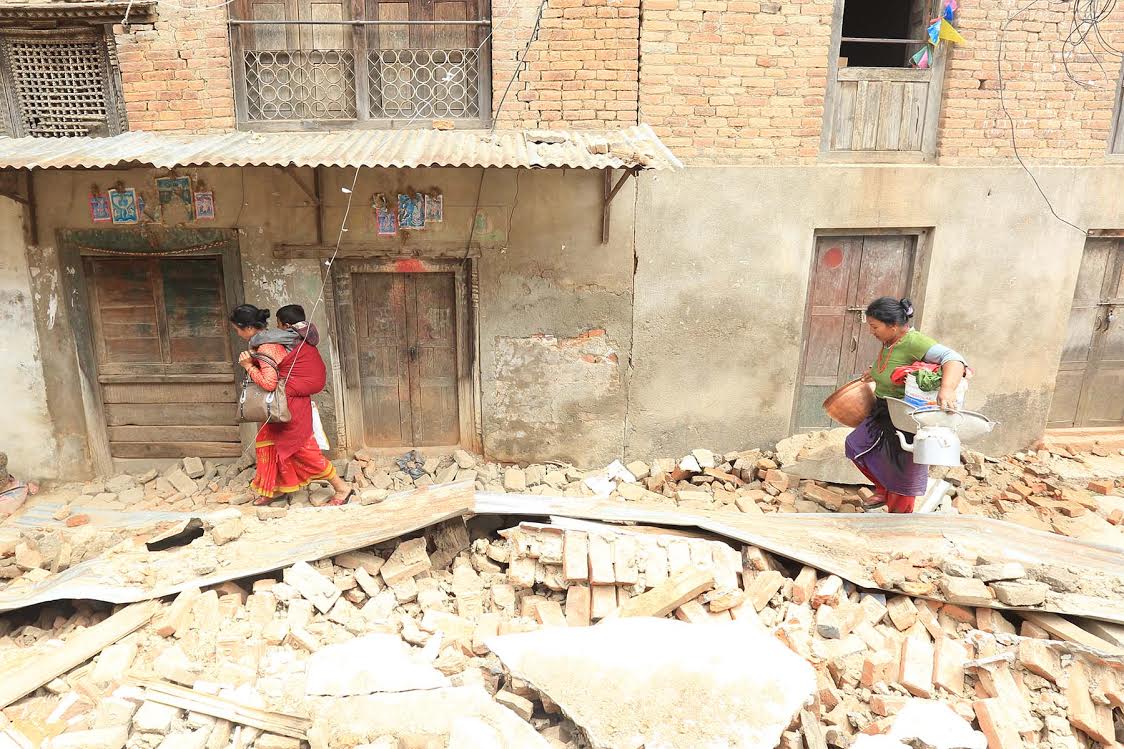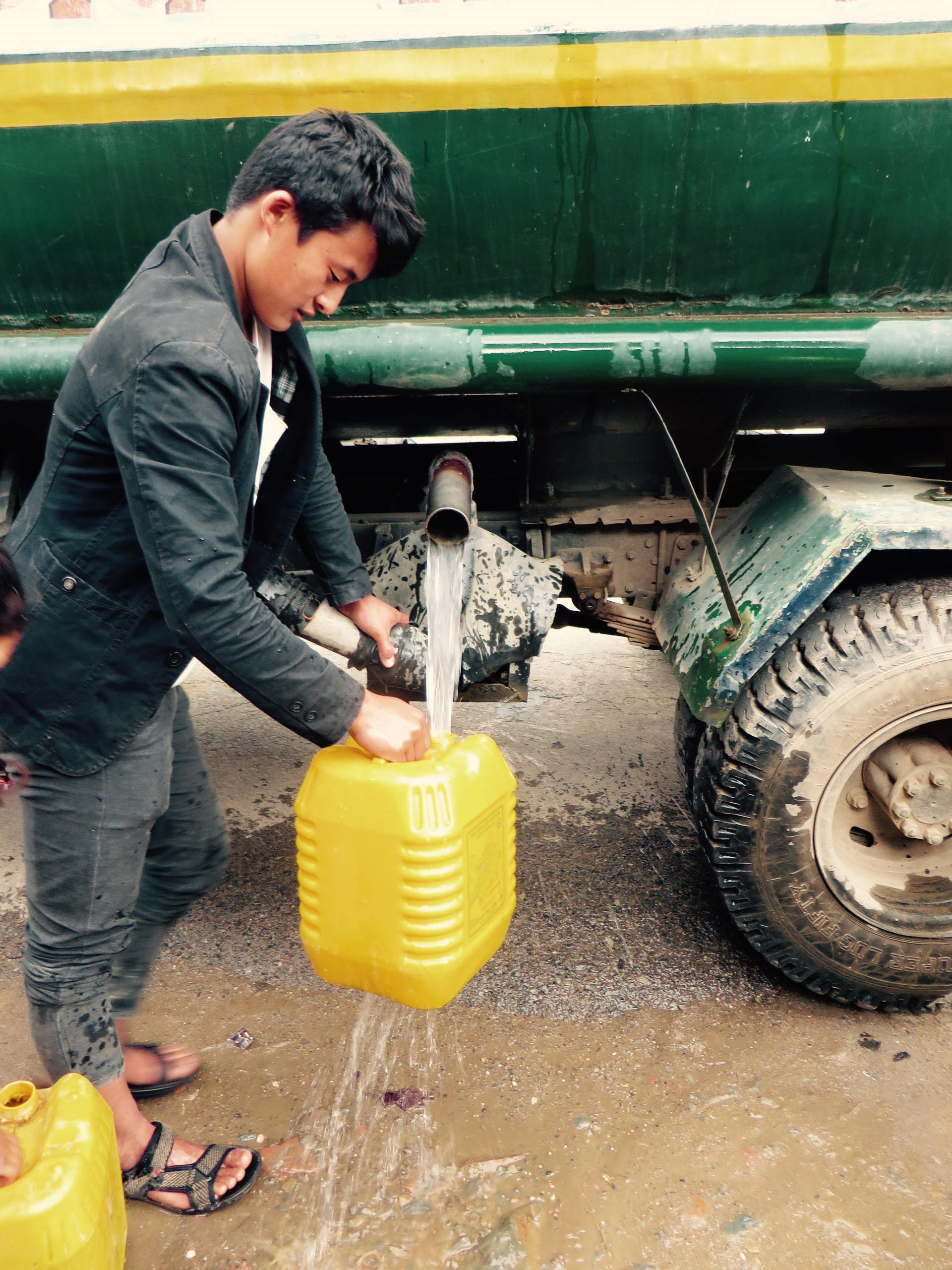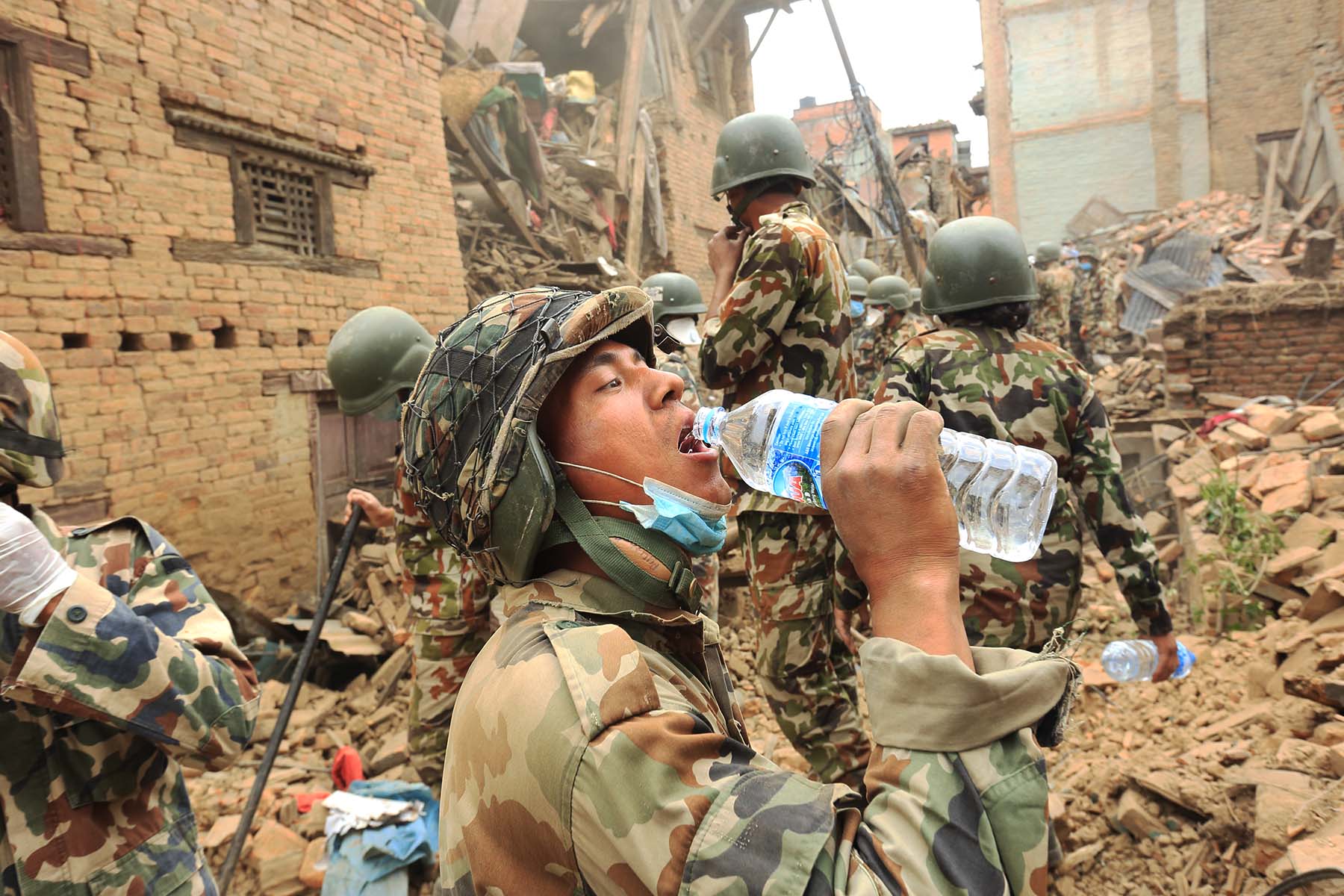Kathmandu, Nepal
In collaboration with

April 2015 – September 2015
We bring water, sanitation facilities and hygiene kits to people without housing.
Objectives
- Provide five tons of water and sanitation materials.
- Ensure that affected people receive adequate humanitarian assistance and prevent disease outbreaks.
Beneficiaries
30.000 direct

On the ground
Destruction and resource deficit caused a humanitarian crisis of 9.5 million people.
More than a quarter of the Nepalese population is affected by the earthquake of magnitude 7.9 on the Richter scale that devastated Nepal on April 25, 2015. The death toll currently stands at more than 5,000 people.
The destruction and resource deficit caused a humanitarian crisis that resulted in 9.5 million people (a quarter of Nepal’s population) needing humanitarian assistance, 2.8 million internally displaced and 1.4 million needing water and food.
In detail
Our staff in Nepal are beginning to reach out to people in Kathmandu and assessing needs. We are currently mobilizing a team of technical experts from the surrounding area and beyond. We will start building sanitation facilities in the temporary camps working in partnership with UNICEF. Nepal is one of the world’s poorest countries. Half of its 28 million population live below the poverty line.
Our priority is to ensure that people affected have adequate humanitarian assistance and we are able to prevent secondary disasters, including outbreak of disease by providing safe water and critical sanitation support. Hundreds of thousands of displace people need urgent humanitarian assistance now – including children and women who are forced to be out in the open, huddled in groups with no food, safe water, or shelter.’ Zubin Zaman, Oxfam India Deputy Director.
More than five tons of water and sanitation materials have been sent from Oxfam’s warehouse in Barcelona to help affected people. This aid, which is included in a flight chartered by the AECID, will allow more than 30,000 people to be supplied with drinking water.




